Related Research Articles

Stanley Ben Prusiner is an American neurologist and biochemist. He is the director of the Institute for Neurodegenerative Diseases at University of California, San Francisco (UCSF). Prusiner discovered prions, a class of infectious self-reproducing pathogens primarily or solely composed of protein, a scientific theory considered by many as a heretical idea when first proposed. He received the Albert Lasker Award for Basic Medical Research in 1994 and the Nobel Prize in Physiology or Medicine in 1997 for research on prion diseases developed by him and his team of experts beginning in the early 1970s.

Günter Blobel was a Silesian German and American biologist and 1999 Nobel Prize laureate in Physiology for the discovery that proteins have intrinsic signals that govern their transport and localization in the cell.

George Emil Palade was a Romanian-American cell biologist. Described as "the most influential cell biologist ever", in 1974 he was awarded the Nobel Prize in Physiology or Medicine along with Albert Claude and Christian de Duve. The prize was granted for his innovations in electron microscopy and cell fractionation which together laid the foundations of modern molecular cell biology, the most notable discovery being the ribosomes of the endoplasmic reticulum – which he first described in 1955.

Christian René Marie Joseph, Viscount de Duve was a Nobel Prize-winning Belgian cytologist and biochemist. He made serendipitous discoveries of two cell organelles, peroxisomes and lysosomes, for which he shared the Nobel Prize in Physiology or Medicine in 1974 with Albert Claude and George E. Palade. In addition to peroxisome and lysosome, he invented scientific names such as autophagy, endocytosis, and exocytosis on a single occasion.
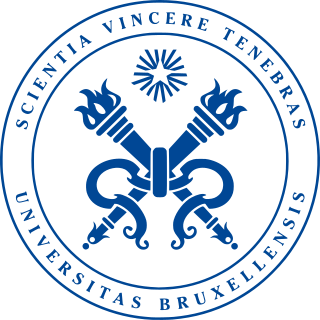
The Université libre de Bruxelles is a French-speaking research university in Brussels, Belgium. It has three campuses: the Solbosch campus, the Plaine campus and the Erasmus campus.

The Yale School of Medicine is the medical school at Yale University, a private research university in New Haven, Connecticut. It was founded in 1810 as the Medical Institution of Yale College and formally opened in 1813.

Paul Greengard was an American neuroscientist best known for his work on the molecular and cellular function of neurons. In 2000, Greengard, Arvid Carlsson and Eric Kandel were awarded the Nobel Prize for Physiology or Medicine for their discoveries concerning signal transduction in the nervous system. He was Vincent Astor Professor at Rockefeller University, and served on the Scientific Advisory Board of the Cure Alzheimer's Fund, as well as the Scientific Council of the Brain & Behavior Research Foundation. He was married to artist Ursula von Rydingsvard.

Elizabeth Helen Blackburn is an Australian-American Nobel laureate who is the former president of the Salk Institute for Biological Studies. In 1984, Blackburn co-discovered telomerase, the enzyme that replenishes the telomere, with Carol W. Greider. For this work, she was awarded the 2009 Nobel Prize in Physiology or Medicine, sharing it with Carol W. Greider and Jack W. Szostak, becoming the first Australian woman Nobel laureate.
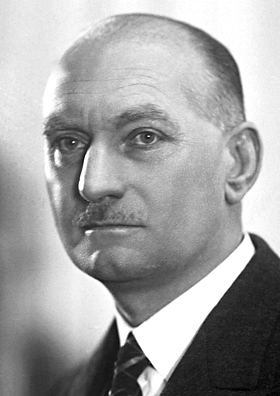
Corneille Jean François Heymans was a Belgian physiologist. He studied at the Jesuit College of Saint Barbara and then at Ghent University, where he obtained a doctor's degree in 1920.
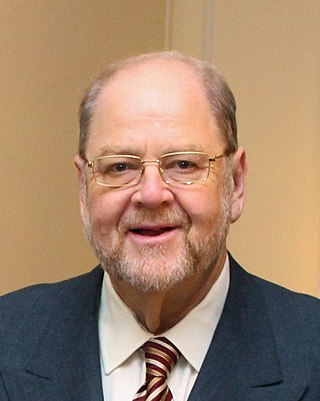
James Edward Rothman is an American biochemist. He is the Fergus F. Wallace Professor of Biomedical Sciences at Yale University, the Chairman of the Department of Cell Biology at Yale School of Medicine, and the Director of the Nanobiology Institute at the Yale West Campus. Rothman also concurrently serves as adjunct professor of physiology and cellular biophysics at Columbia University and a research professor at the UCL Queen Square Institute of Neurology, University College London.
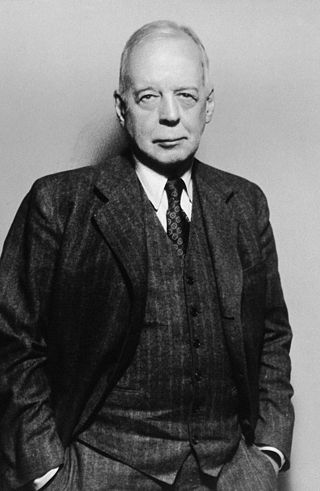
Alfred Newton Richards was an American pharmacologist. Richards, along with Wearn, is credited with the method of renal micropuncture to study the functioning of kidneys in 1924.
The Belgian American Educational Foundation (BAEF) is an educational charity. It supports the exchange of university students, scientists and scholars between the United States and Belgium. The foundation fosters the higher education of deserving Belgians and Americans through its exchange-fellowship program. Since 1977, Dr. Emile Boulpaep is the president of the BAEF.
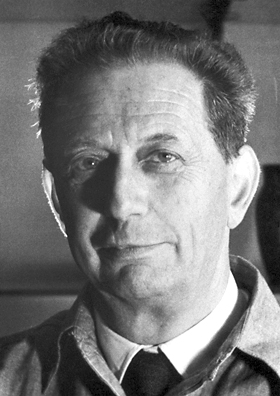
André Michel Lwoff was a French microbiologist and Nobel laureate of Russian-Polish origin.

Arthur L. Horwich is an American biologist and Sterling Professor of Genetics and Pediatrics at the Yale School of Medicine. Horwich has also been a Howard Hughes Medical Institute investigator since 1990. His research into protein folding uncovered the action of chaperonins, protein complexes that assist the folding of other proteins; Horwich first published this work in 1989.
Walter F. Boron is an American scientist and the 72nd president of the American Physiological Society. He was Secretary-General of the International Union of Physiological Sciences. Additionally, Boron is co-editor, along with Emile L. Boulpaep, of the textbook Medical Physiology and Concise Medical Physiology. He is a former editor-in-chief of two leading physiology journals, Physiological Reviews and Physiology.

Ewald Rudolf Weibel HonFRMS was a Swiss anatomist and physiologist and former director of the Institute of Anatomy at the University of Bern. He was one of the first scientists to describe the endothelial organelles Weibel–Palade bodies, which are named after him and his Romanian-American colleague George Emil Palade. He was known for his work on the anatomy of gas exchange in lungs on multiple spatial scales using stereology.
Thomas Dean Pollard is a prominent educator, cell biologist and biophysicist whose research focuses on understanding cell motility through the study of actin filaments and myosin motors. He is Sterling Professor Emeritus of Molecular, Cellular & Developmental Biology and a professor emeritus of cell biology and molecular biophysics & biochemistry at Yale University. He was dean of Yale's Graduate School of Arts and Sciences from 2010 to 2014, and president of the Salk Institute for Biological Studies from 1996 to 2001.

Max Dale Cooper, is an American immunologist and a professor at the Department of Pathology and Laboratory Medicine and the Emory Vaccine Center of Emory University School of Medicine. He is known for characterizing T cells and B cells.

Martha Vaughan was an American biochemist at the National Heart Lung and Blood Institute (NHLBI), part of the National Institutes of Health (NIH) in Bethesda, Maryland. She holds the title of emeritus scientist in the Laboratory of Metabolic Regulation and previously served as chief of NHLBI’s Laboratory of Cellular Metabolism. At the NIH, much of her work has focused on cell signaling, cellular regulation, lipid metabolism, and the identification of key proteins associated with cholera toxin and pertussis toxin. Vaughan first came to the NIH in the agency’s fledgling National Heart Institute, now NHLBI, and with the title of senior assistant surgeon worked on protein synthesis in the Building 3 laboratory of biochemist and public scientist Christian B. Anfinsen, Ph.D., who went on to share the 1972 Nobel Prize in Chemistry
Herman Frans Anna baron Van der Wee is a Belgian economic historian. He was a full professor of social and economic history at the KU Leuven from 1969 to 1993. The academic output of Van der Wee spans economic history, the history of banking, financial history. He has performed research on the period from the Middle Ages to the present time. Geographically he has performed broad research as well, looking into Antwerp, Belgium, the Low Countries, Europe and the world.
References
- ↑ "Emile Boulpaep, MD" . Retrieved 4 November 2024.
- ↑ "Emile Boulpaep, MD". Yale School of Medicine. Retrieved 29 January 2020.
- ↑ "Emile Boulpaep, MD | Office of Cooperative Research". ocr.yale.edu. Retrieved 29 January 2020.
- ↑ "Medical Physiology - 9781455743773 | US Elsevier Health Bookshop". us.elsevierhealth.com. Retrieved 29 January 2020.
- ↑ "Golden Medal for Emile Boulpaep". Royal Flemish Academy of Belgium for Science and the Arts. KVAB. Retrieved 4 November 2024.